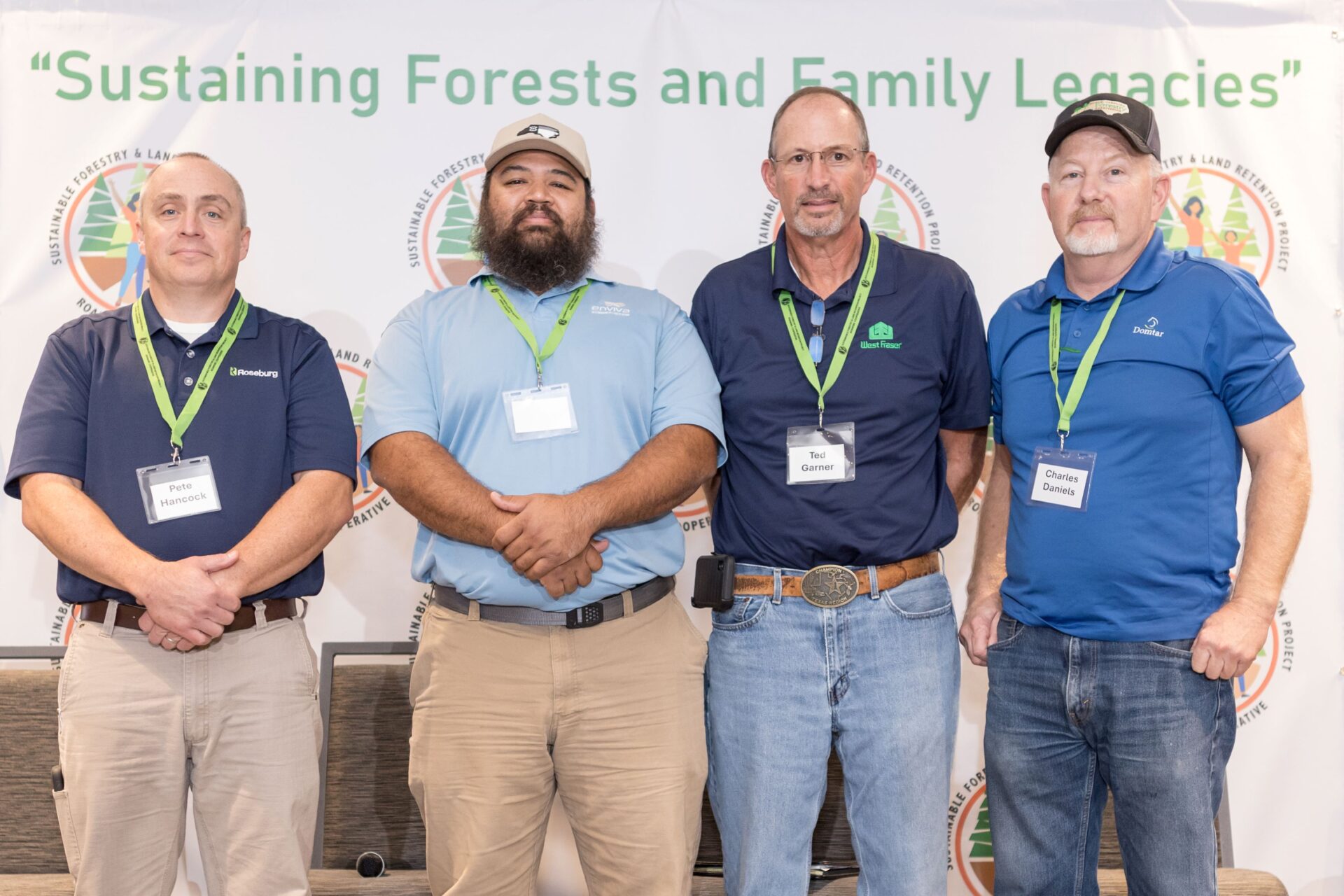Luc Thériault has led Domtar’s Wood Products business unit since August 26, 2024. In his new role, he is responsible for ensuring profitable and sustainable operations, while maintaining strong relationships with internal and external stakeholders. With more than 30 years of experience in the forest products industry and a strong commitment to excellence, Luc aligns perfectly with the company’s goals and values. Read on to learn more about his priorities for our wood products business.
What are the Wood Products business unit’s main objectives for the future?
Continue our work toward zero accidents/incidents
When you step back and look at the progress we’ve made in the area of safety over the past 15 to 20 years, it is truly impressive. We have achieved a level of performance that many didn’t believe was possible at the time. Our success is the result of a strong vision, unwavering determination, a refusal to compromise and the hard work of many people. Unfortunately, we still have safety incidents from time to time, and even one incident is one too many. We need to continue pushing the limits and prove that achieving zero accidents/incidents is possible.
Be an employer of choice
We are focused on providing a workplace where people feel safe and proud to work, and where everyone is heard and has opportunities to grow.
Continue to be great stewards of the forest
We are justifiably proud of our record as exceptional stewards of the environment, and going forward, this commitment will be even more important. The majority of the woodlands we manage are in Canada, where we adhere to robust sustainable forest management principles that balance environmental, social and economic objectives.
Build on our relationships with Indigenous peoples
We recognize and respect the cultural and social significance of land, water and forests to Indigenous peoples. These resources are critical to their future prosperity and economic sustainability. I believe we share a common interest in ensuring that the forests we rely upon continue to provide for the cultural, environmental and economic needs of future generations. I look forward to building on this mutual interest.
Profitability
Following several years of record-high lumber prices and profits, the Wood Products business is currently facing significant challenges, with substantial negative EBITDA (earnings before interest, taxes, depreciation and amortization) in 2023-2024. We are essentially borrowing money to continue operations, which is not sustainable. The main causes of this situation are pricing and cost structure.
Prices are at record lows. There is a significant lack of shelter in both Canada and the United States. In the U.S., it is estimated that about 6.5 million homes are missing, while the age of the average home is increasing, indicating a need for renovations. Demand for lumber will eventually rise and prices will increase, but the timing is uncertain. Improved affordability with lower inflation and lower interest rates are necessary for this recovery.
Our cost structure has increased. The cost of fiber has risen significantly in the last few years. There is some normal inflation in operating costs, but a large portion of the increase (particularly in the province of Quebec) comes from the fiber itself and the negative effect of an inefficient forestry regime. What can we do in this context? We need to be the best in everything we control. We need to run our assets efficiently, minimize spending, be resilient and make difficult decisions to reduce losses.
To ensure a long-term fiber supply, we are actively participating in the review of the Quebec forestry regime to lower fiber costs and improve predictability. We will also work toward securing sustainable volumes for our operations while strengthening our commitment to the environment and biodiversity. In Ontario, we need to find a balance when it comes to tree species consumption.
In terms of markets and sales, we need to outperform the market by increasing the production of high-value products, enhancing our customer mix and building on our position as a supplier of choice. We’ll also be involved in softwood lumber dispute negotiations.
As far as our operations are concerned, we need to continue to beat budgets for production and recovery. That means running our assets to maximize revenues, including increasing the production of high-value products, improving the customer mix and finalizing strategic investments.
What are the Wood Products business unit’s main challenges?
- Profitability: We need to return to cash positive as soon as possible.
- Fiber supply: We need to ensure the predictability of fiber sources while balancing our commitment to the environment.
- Supply chain disruptions: Issues such as wildfires, damage from pests like the mountain pine beetle and the spruce budworm, and railcar availability have disrupted the supply chain.
- Economic pressures: Fluctuations in demand, particularly influenced by the U.S. housing market, and economic downturns, such as the 2008/2009 financial crisis, have impacted the industry.
- Trade conditions: Trade policies, particularly those imposed by the U.S. on Canadian softwood lumber imports, have created additional hurdles.
- Workforce stability: The industry has experienced job losses and faces challenges in retaining skilled labor, which affects productivity and efficiency. There are also Ontario-specific recruitment challenges when it comes to production and maintenance supervisory jobs.
- Environmental regulations: Changes in land use regulations and the high cost of logs and other forest products have also posed challenges.
Does the Wood Products business unit have any capital projects in the works?
We recently completed two key projects. We replaced the planer at our Atikokan, Ontario, sawmill — a $6.5 million investment. The new planer started up in June, and production ramp-up is currently in progress. Additionally, we installed a new kiln at our Cross City, Florida, sawmill, a $15.2 million project. We successfully started up the kiln at the end of September.
Tell us about the new employee social engagement pilot project.
During the summer, we launched an employee community engagement initiative called “United in Purpose.” It’s a pilot project that promotes a positive, collaborative work culture in the Wood Products business unit and aligns with our human resources strategy to attract and retain talented people from diverse backgrounds who share Domtar’s values and objectives.
The initiative involves the development of employee-led community projects and fosters a sense of belonging, appreciation of others and teamwork among our employees, while building leadership and interpersonal skills.
Two projects were selected from the many submissions, and each team will receive $3,000 to complete its project in the coming months:
- A team at the Mistassini, Quebec, office will address food insecurity during slower times of the year with support from residents of the Maria-Chapdelaine and Domaine-du-Roy regional county municipalities. While food drives are common during the holiday season, this project aims to extend them from January to June, when resources are scarcer.
- Côte-Nord, Quebec, woodlands employees will promote gardening as an activity to enhance physical and mental health. By offering raised garden beds adapted to the needs of various groups in the region, this project will help make gardening accessible to senior and youth centers, as well as organizations that assist newcomers.






